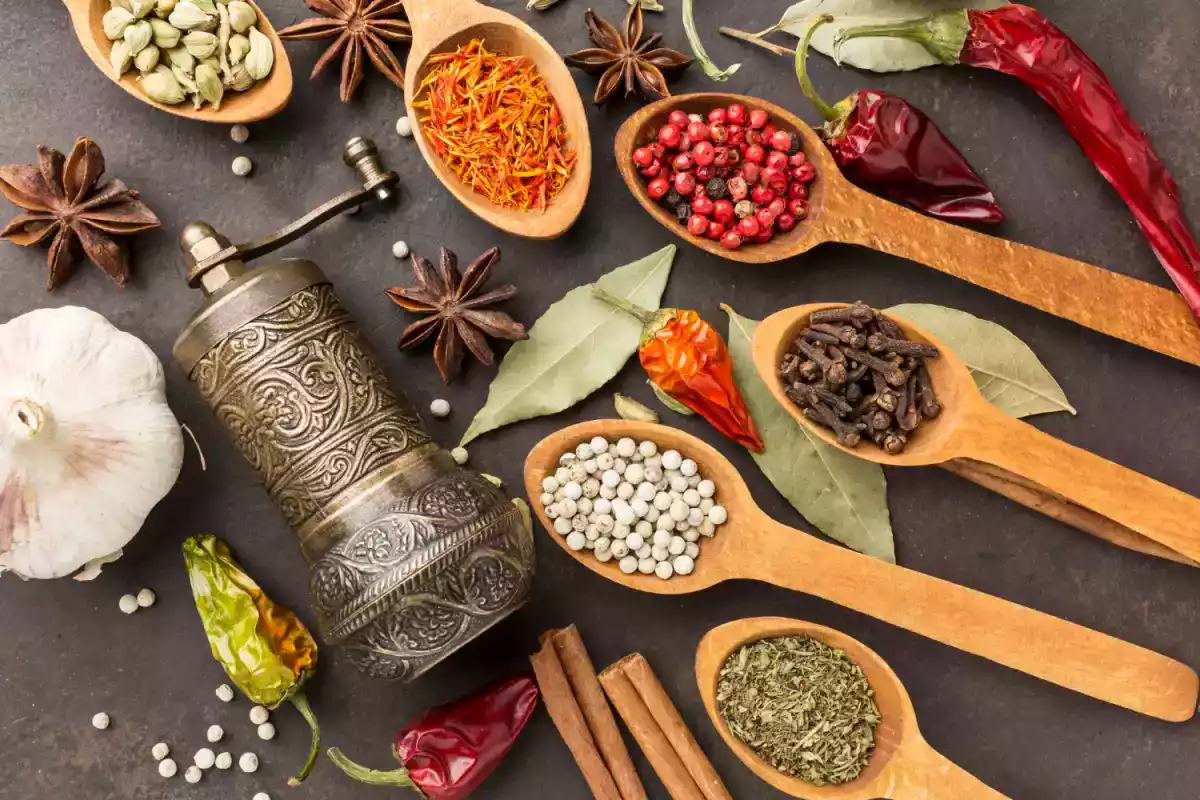These spices could be contaminated!

Spices are essential ingredients in the kitchen, adding a unique flavor and aroma to recipes. However, the search for cheaper products can pose health risks. Many spices sold at low prices can be contaminated with dangerous substances, such as heavy metals, pesticides, or even adulterated with low-quality ingredients.
In this article, we will explore the dangers of these contaminations, how to identify poor quality products and how to protect yourself when buying spices.
1. Risks of contamination in cheap spices
Low-cost spices can be the result of inadequate practices in their production, transportation or storage. Here are some of the main forms of contamination:
- Heavy metals: Lead, cadmium and arsenic are examples of heavy metals that can contaminate spices through the soil or during processing. These metals are toxic to the body and can cause long-term health problems, such as damage to the liver, kidneys and nervous system.
- Pesticides: The excessive use of pesticides in agriculture is another common source of contamination. Some residues can remain in the spices, even after processing.
- Adulteration with inferior ingredients: To reduce costs, spices can be mixed with cheap materials such as brick dust, sand or flour, compromising not only the taste but also the safety of the food.
- Microbial contamination: Improper storage can lead to contamination by fungi and bacteria, resulting in the presence of mycotoxins, dangerous substances produced by fungi.
2. How to identify spices of dubious quality
Although it is not always possible to identify contaminated spices by their appearance alone, a few tips can help:
- Price well below market: Spices that cost significantly less than average can be a warning sign of low quality or adulteration.
- Irregular texture and color: Adulterated spices may have faded colors or textures that don't match the original product. For example, a powder that is too fine or unevenly granulated can indicate a mixture of foreign substances.
- Weak or altered aroma: Fresh spices have an intense characteristic aroma. If the smell is weak or different from what is expected, it could be a sign of poor quality or adulteration.
- Lack of information on the packaging: Products without a proper label, including information such as origin, expiry date and registration with inspection bodies, should be avoided.
3. Tips for buying spices safely
To avoid risks, follow these practices when buying spices:
- Prefer reliable suppliers: Buy spices from renowned brands or from specialized stores where the origin of the products is guaranteed.
- Read the label: Check that the packaging contains detailed information such as ingredients, expiry date, product origin and registration with health surveillance agencies.
- Opt for organic products: Organic spices are grown without the use of pesticides or chemical fertilizers, reducing the risk of contamination by toxic residues.
- Store correctly: Store spices in a cool, dry place away from direct sunlight to avoid the proliferation of fungi and bacteria.
- Avoid grinding unknown spices: Always buy whole products and grind them at home if possible. This reduces the risk of adulteration.
4. The dangers of consuming contaminated spices
Consuming contaminated or adulterated spices can cause serious damage to your health. Among the most common effects are:
- Food poisoning, with symptoms such as nausea, vomiting and abdominal pain;
- Allergic reactions or irritation of the digestive tract;
- Accumulation of heavy metals in the body, which can lead to neurological, kidney and liver problems in the long term;
- Exposure to mycotoxins, which are carcinogenic and highly toxic.
So stay tuned!
Although price is an important factor when choosing spices, it is essential to prioritize the quality and safety of the products we consume. Cheap spices can hide invisible dangers, such as contamination by heavy metals, pesticides or adulteration with materials harmful to health.
By adopting conscious purchasing practices and checking the origin of products, you guarantee not only the taste and aroma of your dishes, but also your health and well-being. After all, a little care can prevent big problems in the future.
Read more
 Mirella Mendonça
Mirella Mendonça


Comments